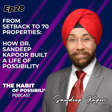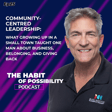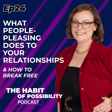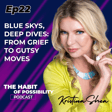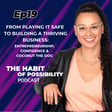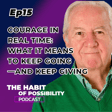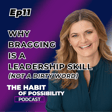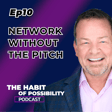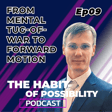
The End of Burnout: How to Align Your Work and Wellbeing
In this conversation, we explore:
- Why “hustle harder” isn’t the path to true success (and what to do instead)
- How to set clear boundaries without sacrificing results
- The role leaders play in creating safe, high-performing teams
- Practical ways to align your work with your values and personal rhythm
Executive Leadership Coach Stephanie Woodward shares her own journey from being a self-described “productivity addict” to creating a healthier, more fulfilling relationship with work. We dig into the shared responsibilities of leaders and team members, the underrated power of psychological safety and resilience, and the importance of knowing your own limits. Whether you’re leading a team or navigating your own career path, this episode will give you practical tools to align your productivity with what truly matters, so you can enjoy your career without burning out.
Stephanie Woodward, the founder of Agency to Change, works with individuals, leaders and organizations to optimize their approach to work, leadership and workplace culture. She is the creator of the Conscious Productivity assessment, host of the newly released Conscious Productivity Podcast, and author of the #1 Amazon bestseller The Big Scale Back: Success and Balance By Your Own Design.
Take Stephanie's free Conscious Productivity Quiz and get your personal productivity profile: https://conscious-productivity.scoreapp.com/
Connect with Stephanie on Instagram: @agencytochange
We are getting many requests these days for help with managing stress and navigating all of the change happening around us. So, we are offering free Stress Management workshops, both in person at our training facility in Burlington, Ontario Canada, and online via Zoom. Learn more and register here: https://www.hypnosistrainingcanada.com/stress-management-workshop
Learn more about how Robbie Spier Miller’s coaching, training, consulting and speaking opportunities can help you enhance your personal and business performance here:
https://www.hypnosistrainingcanada.com
https://www.mindlinkconsulting.com
@hypnosistrainingcanada
@robbiespiermiller

